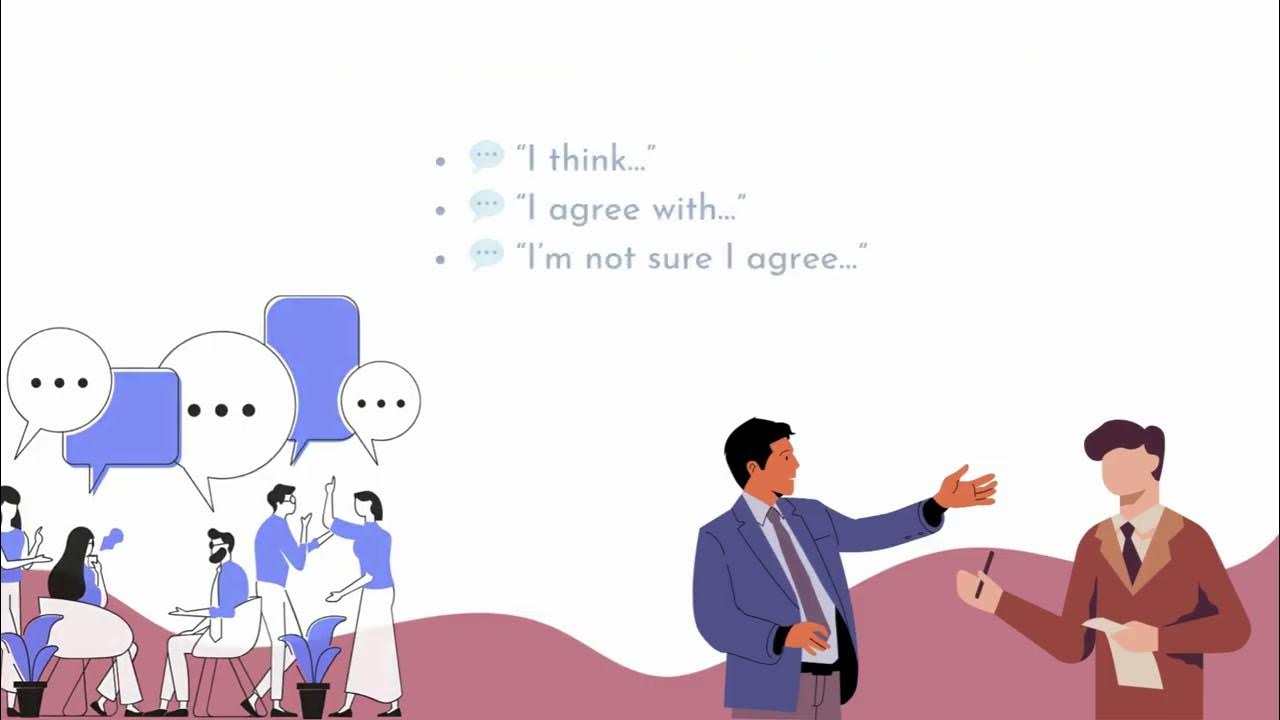Digital Literacies - Identity
Summary
TLDRThis video script delves into the concept of digital identity, emphasizing how it mirrors our physical identity with the potential for judgment based on online presence. It highlights the importance of curating our online image, as it often serves as the first impression in various social and professional contexts. The script encourages viewers to consider the content they share and their privacy settings, suggesting a self-audit by Googling oneself to understand how one's digital identity is perceived.
Takeaways
- 🧩 Digital identity is similar to physical identity, as it involves how people perceive you based on your online presence.
- 🔍 People often judge others by their looks, body shape, and other physical attributes, which is mirrored in how digital identity is formed through online interactions.
- 🌐 Everything you post online contributes to your digital identity, including images, comments, profiles, and the content you engage with.
- 🤳 The concept of a 'virtual self' is crucial in understanding how individuals present themselves online, which may not always be an accurate reflection of their true selves.
- 💼 Employers are increasingly using digital platforms like Google, Facebook, and Twitter to assess potential candidates, making digital identity a critical factor in first impressions.
- 🔎 A simple online search can reveal a lot about a person's digital identity, including their comments, criticisms, and social attitudes.
- 💭 The idea of a 'virtual self' is significant as it influences how others perceive you online before you even have a chance to make a first impression.
- 🛡️ Controlling your digital identity involves being mindful of the image you project online through comments, uploads, and other interactions.
- 🔒 Privacy settings and regularly checking your online presence are essential practices for managing your digital identity.
- 🔎 Encouraging individuals to 'Google' themselves to understand and potentially improve their digital identity is a proactive approach to online reputation management.
Q & A
What is the concept of digital identity as discussed in the script?
-Digital identity refers to the persona that one projects on the internet, which includes images, comments, profiles, and any other content that they participate in or share online. It is the first impression people form about an individual before meeting them in person.
How is a person's physical appearance related to their identity?
-A person's physical appearance, including their looks, hair, and body shape, contributes to their identity as it is often the first thing people notice and judge, forming a mental image of who that person is.
What is the 'mirror effect' or 'virtual self' mentioned in the script?
-The 'mirror effect' or 'virtual self' is a concept where individuals see a version of themselves online, which may or may not be an accurate reflection of their true selves. It's what they want others in the online world to perceive them as.
Why is the idea of a virtual self important when interacting with others online?
-The virtual self is important because it influences how others perceive you online. It can affect relationships, interactions, and even opportunities, as people often judge and form opinions based on the digital persona presented.
How are employers using digital identity to assess potential employees?
-Employers are using digital identity to get a better understanding of a candidate's personality and values. They might search for a candidate's online presence on platforms like Google, Facebook, or Twitter to see their comments, criticisms, and social attitudes.
What is the significance of controlling one's digital identity?
-Controlling one's digital identity is crucial as it allows individuals to manage the image they present online. It can impact their personal and professional lives, as well as how they are perceived by others.
What steps can an individual take to consider their digital identity?
-Individuals can consider their digital identity by being mindful of the content they post, comment on, or share online. They can also review their privacy settings and periodically check their online presence by searching for themselves on the internet.
How can one check their online presence?
-One can check their online presence by simply Googling their name or using social media search functions on platforms like Facebook or Twitter. This will show what information is publicly available about them online.
What is the impact of a strong digital identity on personal branding?
-A strong digital identity can enhance personal branding by showcasing an individual's values, interests, and professional image. It can help in building a positive reputation and attracting opportunities.
What are some examples of content that contribute to one's digital identity?
-Examples of content that contribute to one's digital identity include images, comments, profiles, blogs, videos, and any other form of content shared or participated in on the internet.
Why is the script's mention of the commonwealth games incident relevant?
-The commonwealth games incident is relevant as it illustrates how a person's digital identity can have real-world consequences. In this case, a girl's social media comments led to her being dropped from plans for the event due to her perceived social attitude.
Outlines

This section is available to paid users only. Please upgrade to access this part.
Upgrade NowMindmap

This section is available to paid users only. Please upgrade to access this part.
Upgrade NowKeywords

This section is available to paid users only. Please upgrade to access this part.
Upgrade NowHighlights

This section is available to paid users only. Please upgrade to access this part.
Upgrade NowTranscripts

This section is available to paid users only. Please upgrade to access this part.
Upgrade NowBrowse More Related Video

Digital Literacies and My Identities - Project Micro Teaching CALL

The Last Judgement Is a Symbol for How All Identity Works | Jonathan Pageau

Identidad Digital

UNDERSTANDING THE SELF: THE DIGITAL SELF

(Don't) Know Thyself | Serial Experiments Lain Anime Discussion

Understanding Your Digital Footprint: Media Activity
5.0 / 5 (0 votes)